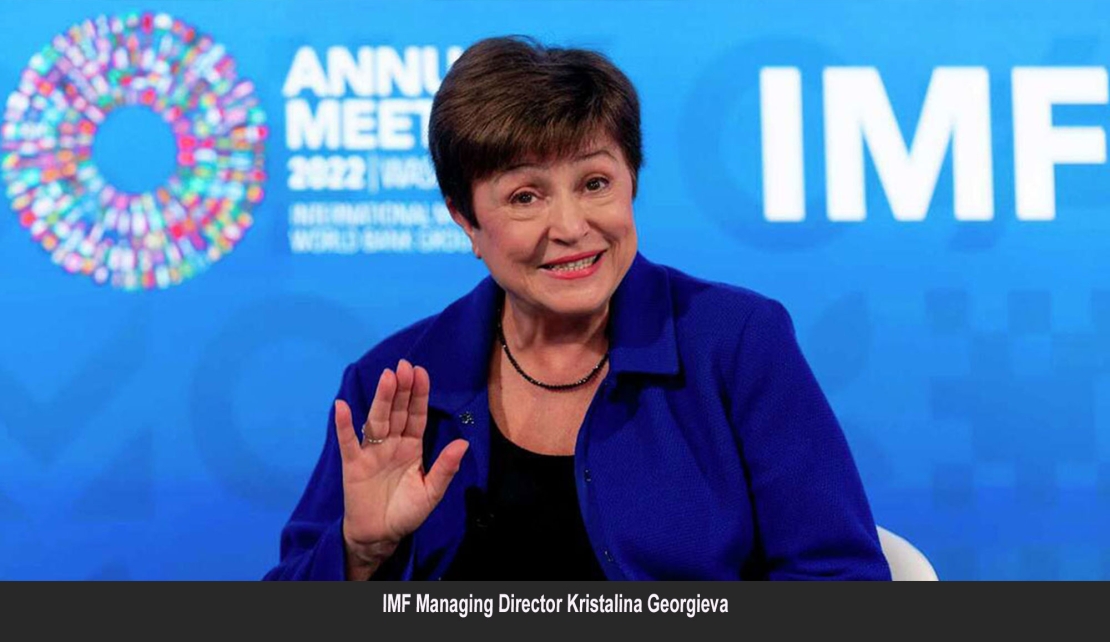IMF Managing Director Kristalina Georgieva, has painted a grim picture of the world’s economy, having been hit by one shock after another to include Covid, Russia’s invasion of Ukraine, and climate disasters on every continent, causing harm to people’s lives and a cost-of-living crisis.
Addressing the Annual Meeting in Washington, Ms Georgieva pointed out that across many economies, the risks of recession are rising. And even when growth is positive, for many people, it will feel like a recession because of rising prices and shrinking real incomes.
She also pointed out that “the risks to financial stability are growing and uncertainty remains exceptionally high. Our World Economic Outlook shows a one-in-four chance that global growth could drop to a historic low of 2 percent next year. On Tuesday, we cut our global growth forecast to 2.7 percent in 2023.
The IMF Managing Director pointed to a number of “very clear areas where we can do better, even in this more complex environment. These include bringing inflation down; putting in place responsible fiscal policy and acting now to safeguard financial stability.
“We know that rising interest rates come at a cost to growth. But we also know that not tightening enough to put a leash on inflation would mean interest rates staying higher for longer, resulting in even more harm to growth and people. For central banks, this means taking decisive action when necessary, and communicating as clearly as they can.
“We must prioritize protecting vulnerable households and businesses. But we have to do that at a time when fiscal buffers are exhausted because of the pandemic and levels of debt are very high.
“If we are to help people and fight inflation, we must ensure that fiscal and monetary policies go hand in hand. When monetary policy hits the brakes, fiscal policy should not step on the accelerator—that would make for a very dangerous ride,” she cautioned.
“In this environment, we also must support vulnerable emerging markets and developing countries. It is tough for everybody, but it is even tougher for countries that are now being hit by a stronger dollar, high borrowing costs, and capital outflows—a triple blow that is particularly heavy for countries that are under a high level of debt. We are focusing on debt this week, especially for low-income countries where over 60% are at or near debt distress, Ms Georgieva said.
“We need stronger efforts to confront food insecurity —345 million people are acutely food insecure. Children, women, and men are at risk of dying because of hunger.
"And we need transformational reforms to address climate change, to make digitalization work for people, and to address inequality. To confront these issues, we must act with sense of urgency now, and we must act together.
"The IMF is working with our 190 members on these issues. Our economic analysis is front and center to help countries navigate this complex environment and avoid policy mistakes.
"Our lending is aligned with our counter-cyclical role. Since the pandemic began, we have provided $260 billion in financial support to 93 countries. Since Russia’s invasion of Ukraine, we have supported 18 new and augmented programs with close to $90 billion. And we now have 28 additional countries expressing interest in receiving support from the Fund.
"That comes on top of the $650 billion SDR allocation. We have an ambition of $100 billion of on-lending of SDRs from countries in a strong position. Where are we? We have just crossed over $80 billion. And we are determined to reach the target in the coming months.
The IMF Managing Director pointed out that "We have created our first ever long-term financing instrument to support the transformation of economies—the Resilience and Sustainability Trust. It is now operational. We have pledges of $40 billion, and staff level agreements for the first three countries: Barbados, Costa Rica, and Rwanda."
She said "for countries suffering from the food crisis, we have expeditiously opened emergency financing—the Food Shock Window—to provide rapid financing for urgent needs.
"We are pressing for a more effective debt resolution mechanism. We want the G20 Common Framework to become more predictable, with clear guidelines and equality of treatment for all creditors, public and private. We are also looking for ways to expand that kind of donor coordination to middle-income countries, such as Sri Lanka. We must act urgently, and act together to make a difference in the lives of hundreds of millions of people," Ms Georgieva concluded.

